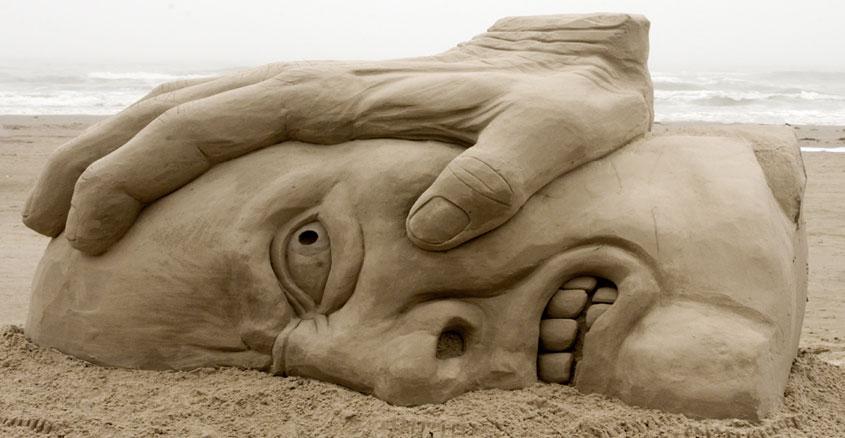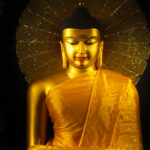In the very first discourse of the Buddha after attaining Enlightenment, the Buddha revealed craving as the fundamental cause of life’s problems, i.e., the cause of suffering.
Now this, monks, is the noble truth of the origin of suffering: it is this craving which leads to renewed existence (ponobhavikā), having the nature of adhering with desire (nandirāgasahagatā), delighting in each and every birth (tatra tatrābhinandini), namely:
- Craving for sensual pleasures (craving for forms, sounds, odors, flavors, and tangibles)
- Craving for existence (believing one’s life to be “me, mine, and my self” and craving for a continued existence of a self)
- Craving for non-existence (the deep-rooted craving for this mind, body, and everything else not to exist. When this craving becomes prominent, it causes rebirth in the formless realms and the impercipient realm)
SN 56.11 – Setting in Motion the Wheel of the Dhamma (Dhammacakkappavattana Sutta)
The Ignorant Fail to See the Influence of Craving
The Buddha, who eradicated craving, emphatically stated that these three types of craving must be eradicated in order to achieve complete peace in life. At first glance, a person who lives an ordinary life will not see that these three forms of craving exist within him. Rarely does one realize that one is caught up in the fast-acting nature of craving.
This is because many people do not get an opportunity in their lives to listen to the true Dhamma that requires deep study and investigation. One who is naturally inclined toward gratification lives with the constant fear of losing that gratification of the senses. A life afflicted by ignorance and shrouded by self-view is not easily directed toward realization. Yet, if someone directs his wisdom in line with the Buddha’s teachings, he alone will succeed in developing the Noble Eightfold Path to fully realize the Four Noble Truths, and thereby gain ultimate peace in life.
Unique and Unsurpassed Wisdom of the Buddha
Generally, for most people, just the thought of getting rid of craving scares them. But if someone saw the nature of craving, the suffering caused due to craving, how craving conditions clinging, how clinging conditions the arranging of kamma to bear fruit, and how the arranging of kamma to bear fruit causes birth, propelling beings headlong into the misery of saṃsāra—the endless cycle of birth and death—such a person would never relish the continued existence of craving.
One day, a certain deva came to the Buddha and asked: “Who created beings?”
The Blessed One provided a precise answer, saying: “Craving created beings.”
The Buddha did not give these answers based on knowledge heard and learned from someone else. When Buddha achieved enlightenment there arose within the Buddha the vision and knowledge of Dhamma, unheard of before in his life, which is why the Buddha’s knowledge is declared pubbe ananussutesu dhammesu. It is with this exceptional realization Buddha described craving in the following manner.
What Is Craving?
Monks, what is craving? Monks, craving arises in six ways: there arises craving for forms, there arises craving for sounds, there arises craving for odors, there arises craving for flavors, there arises craving for tangibles, there arises craving for mental phenomena. This, monks, is called craving.
SN 12.2 – Analysis of Dependent Origination
(Vibhaṅga Sutta)
Once the Buddha was asked:
What is the arrow that has pierced deep into this life?
The Buddha’s reply was very clear:
Craving is the arrow that has pierced deep into this life.
SN 1.66 – Afflicted (Attahata Sutta)
We Suffer Because of the Things We Love and Desire
In our pursuit of happiness in life we are hell-bent on amassing things we love and desire both animate and inanimate, but Buddha clearly pointed out these in fact are the very things that cause us suffering.
Monks, devas and humans dwell in forms, they are attached to forms, they delight in forms. With the change of forms, having to let go and eliminate the desire for forms, devas and humans dwell in suffering. Monks, devas and humans dwell in sounds… dwell in odors… dwell in flavors… dwell in tangibles… Monks, devas and humans dwell in mental phenomena, they are attached to mental phenomena, they delight in mental phenomena. With the change of mental phenomena, having to let go and eliminate the desire for mental phenomena, devas and humans dwell in suffering.
SN 35.136 – Delight in Forms (Gayha Sutta)
Only the individual who has the ability to understand life deeply will succeed in understanding that beings suffer due to craving. Desire can lead one’s whole life toward utter ruin and immense suffering.
Worldly life is based on desire. Therefore, farsighted thinking is not present in ordinary life. The Buddha understood how beings of the world imprisoned within narrow thinking patterns face various hardships, conflicts, quarrels, and even loss of life—all of which arise because of craving.
The Chain Reaction That Triggers Chaos
From the following excerpt of a discourse by the Buddha it is crystal clear that all the turmoil that exist in the world has craving as its root cause.
Thus, Ānanda, because of feeling craving arises; because of craving there is seeking; because of seeking there is gain; because of gain there is arriving at a decision about what was gained; because of arriving at a decision there is attaching with desire; because of attaching with desire there is the mind’s immersion in what was gained, with the thought: “It is mine;” because of the mind’s immersion in what was gained, with the thought: “It is mine,” there is the arising of the sense of ownership in the mind; because of the arising of the sense of ownership in the mind there arises stinginess; because of stinginess there is safeguarding what was gained; because of the struggle to safeguard what was gained, various evil unwholesome phenomena originate—the taking up of clubs and weapons, conflicts, antagonism and quarrels, puerile scolding, divisive speech, and lying.
DN 15 – The Great Discourse on Causation
(Mahānidāna Sutta)
It is when we study these discourses of the Buddha that we can understand at least to some extent the seriousness of craving. Craving exists like a cancer that has metastasized in all directions. Because of his amazing realization, the Buddha was able to discover how sorrow and suffering originate due to craving.
The Buddha clearly stated that it is craving that creates the beings (taṇhā janeti purisaṃ) of the world; it is craving that raises the beings of the world to suffering, and it is craving that drags the beings of the world from one existence to another.
The Fundamental Cause of Suffering
In this way, craving is the main cause of both present and future conflict, unrest, corruption, deceit, crimes, violence, and terrorism in the world.
For the first time in the history of humankind, the Buddha discovered the source of all the problems in life, through what was truly the greatest scientific research, but which did not involve the use of any external physical equipment but by purifying and developing his mind through the Noble Eightfold Path. There is no place within this discovery for a theory of creation by a god, a theory of a permanent self, or materialism.
There is no creator god in the world capable of challenging the amazing wisdom of the Buddha. He precisely and practically identified craving as the fundamental cause of suffering and ever so compassionately showed us the Noble Path to eradicate craving once and forever.
By a Venerable Thero of Mahamevnawa Buddhist Monastery













Recent Comments